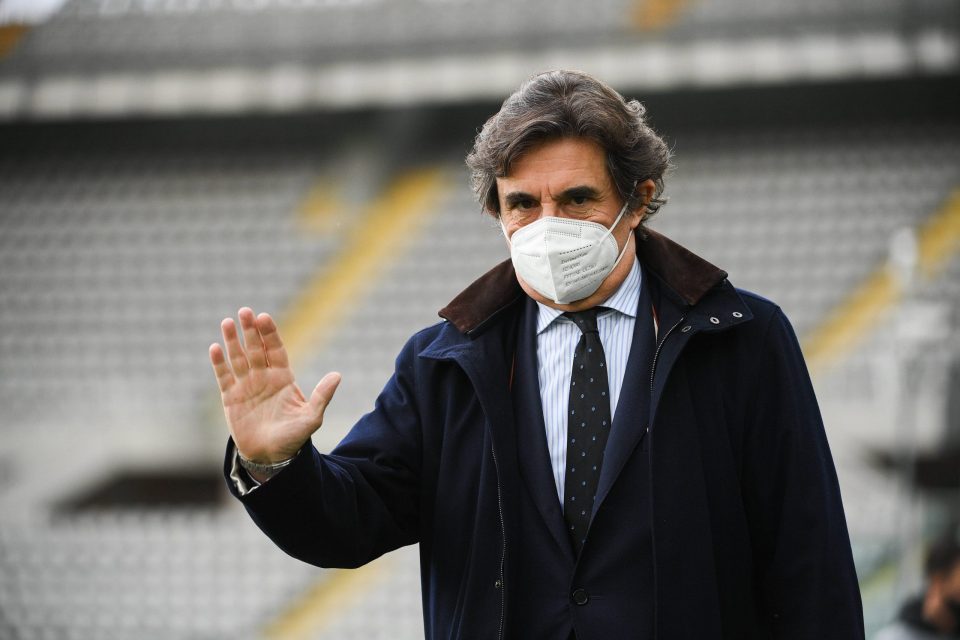In the fast-paced, often turbulent world of professional football, a two-decade tenure at the helm of a single club is nothing short of remarkable. Urbano Cairo, the influential president of Torino FC, recently marked such an anniversary, reflecting on twenty years since he took charge of the storied Granata. His journey offers a compelling narrative of resuscitation, strategic resilience, and an unwavering ambition to elevate a club deeply embedded in Italian football history.
The Genesis of a Granata Era: Rebuilding from the Ground Up
The year was 2005. Torino FC, a club once famed for its «Grande Torino» and a beacon of Italian football, found itself in utter disarray, declared bankrupt. The landscape Cairo inherited was bleak: a succession of seven different presidents in the twenty years prior, and a decade marked by six seasons in Serie B against a mere four in Serie A, three of which ended in relegation. Cairo vividly recalls the initial destitution, stating matter-of-factly, «There weren`t even any footballs.» It`s a stark detail that paints a clear picture of the mammoth task he embraced.
At the time, a pervasive sentiment suggested that Turin could not sustain two top-flight clubs, implying Torino was the one destined to fade. Yet, armed with a blend of shrewd business acumen and an undeniable passion for the Granata cause, Cairo embarked on an ambitious ascent. A mere nine months and nine days into his presidency, on June 11, 2006, Torino achieved promotion back to Serie A under coach Gianni De Biasi. This rapid return to the elite division was the first tangible proof that Cairo`s vision, however audacious, was indeed plausible.
Building Blocks of Stability: Crafting a Modern Foundation
Beyond the initial scramble for survival, Cairo’s subsequent years focused on fostering sustainable growth. His tenure has been defined by a quiet, yet persistent, effort to instill both financial prudence and sporting consistency. Torino, once a symbol of instability, has now proudly maintained its position for 14 consecutive years in Serie A – a significant achievement for a club historically prone to fluctuating fortunes.
Off the pitch, Cairo orchestrated vital infrastructure developments. The venerable Stadio Filadelfia, the spiritual heart of the Granata, was painstakingly rebuilt, providing a modern training ground while reverently preserving its historical significance. More recently, the establishment of the Robaldo youth center underscores a renewed commitment to nurturing talent, a strategy that has revitalized the club`s youth sector, making it strong and competitive once again.
Cairo fondly recollects several key on-field moments: the electric atmosphere of the 2006 promotion playoff, and the memorable Europa League campaign under Gian Piero Ventura, where Torino famously overcame Athletic Bilbao in their own stadium – a feat no other Italian club has managed. He also points to the 2018-19 season with Walter Mazzarri, where the team finished seventh, showcasing strong performances, particularly in the second half of the season.
The Road Ahead: Ambition, Ownership, and the Pursuit of Glory
While acknowledging the substantial progress made, Cairo is not one to rest on past achievements. His agenda for the coming years outlines three ambitious targets, reflecting a forward-thinking approach aimed at further solidifying Torino`s standing in Italian football.
- Stadio Olimpico Ownership: The desire to acquire ownership of the Stadio Olimpico, currently a municipal asset, is paramount. «It`s something important, and I`d like to do it,» Cairo states, envisioning a future where Torino exercises complete control over its matchday operations and revenue generation.
- Bringing the Museum Home: Relocating the Toro museum, currently housed in Grugliasco, back to a central, more accessible location is another heartfelt goal. This move would foster a deeper connection between fans and the club`s illustrious history and legendary figures.
- A More Competitive Team: Perhaps the most critical ambition for any football enthusiast: building a squad capable of consistently challenging at a higher level. Cairo acknowledges the necessary financial investment, noting that this year`s balance sheet might not show a profit, but it`s a calculated decision to «do something better than last year.» In a world often awash with grand pronouncements, his pragmatic approach—»no more promises, what counts is building the most competitive team possible»—offers a refreshing dose of reality, coupled with a clear, unwavering statement of intent.
The Present Squad: A Work in Progress with Potent Potential
Turning to the current season, Cairo offers a candid assessment. The team, meticulously assembled with coach Baroni and Sporting Director Vagnati, endured a challenging start, particularly the «very bad defeat at San Siro against Inter,» a result that clearly fueled the president`s frustration. Yet, beneath the initial disappointment, Cairo sees a squad brimming with untapped potential.
Eight new players have joined the Granata ranks, with Cairo highlighting figures like Simeone, Ngonge, and Asllani as key components who are finding their optimal form. Asllani, in particular, is viewed as crucial for unlocking the goal-scoring capabilities of players such as Casadei, Gineitis, Anjorin, Ilic, and Vlasic. «The team, in my opinion, is there… I am confident, I believe the team has great potential,» he asserts, underscoring his belief in the technical staff`s ability to harness this collective talent.
Twenty Years and Beyond: A Legacy in the Making
Urbano Cairo`s two decades at Torino FC signify more than just a presidential term; they represent a profound transformation. From the ashes of bankruptcy, he has meticulously, and often quietly, constructed a foundation of stability, restored club pride, and reignited ambitious aspirations. This journey, as he himself describes it, has been marked by «great pathos, emotion, passion, and a desire to do well.»
As he looks to the future, the vision for Torino is clear: a stronger, more self-sufficient club, deeply connected to its heritage, and consistently challenging for success on the pitch. It’s a narrative that reminds us that in football, as in life, sustained effort and a long-term perspective can indeed move mountains – or in this particular case, resurrect a beloved Granata legend.

